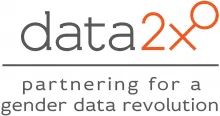INTRODUCING A NEW GENDER DATA MODULE IN THE DATA4SDGS TOOLBOX
As our partners at Data2X rightly remind us, ‘Without data equality, there is no gender equality.’ Consistent, internationally comparable statistics on women’s and girls’ outcomes remain scarce in key areas, hampering efforts to close gender inequalities as well as monitor several gender-related targets under the SDGs. Many of the governments that have embarked on national data roadmap processes with the Global Partnership for Sustainable Development Data, have highlighted this scarcity and are committed to addressing it. But how?
We are pleased to introduce a new Gender Data Module in the Data4SDGs Toolbox produced by Data2X. This module offers a primer and straightforward guidance aimed primarily at countries on gender data collection for national data roadmaps. It is the first iteration of this module, which Data2X will deepen over time, building in more real-world examples and practical advice along the way.
The module discusses the importance of individual, sex-disaggregated data for policy design and monitoring different SDG indicators related to gender, and how surveys can be augmented to address many important gender data gaps in the near term. It also highlights new approaches to survey data collection and analysis, linking to increased availability of complementary data sources from mobile phone and global positioning system (GPS) data, which can help in identifying more vulnerable groups and communities. The module also provides links to important resources by different agencies on collecting and analyzing sex-disaggregated data for readers who wish to take a deeper dive.
WHAT IS COVERED IN THE GENDER DATA MODULE?
The following topics are included in the gender data module:
- Overview: Outlines the policy consequences of missing or incomplete data on women’s and girls’ outcomes and discusses efforts among international agencies and countries to help improve the collection and quality of gender statistics.
- Gender data that informs policy: Highlights the need for representative data collected at the individual level to effectively guide gender-relevant policies targeted towards women and girls, as well as the role of institutional and big data sources in complementing traditional surveys.
- Prioritizing key gender data gaps: Based on a Data2X mapping report of gender data gaps, discusses important policy-relevant gaps in gender data, along with the SDG targets that can be addressed in the nearer term — across health, education, economic opportunities, political participation, and human security.
- Near-term indicators for monitoring gender targets in the SDGs: A recent report by Open Data Watch and Data2X identified a set of 20 “Ready to Measure” (R2M) indicators across eight SDG targets that can be measured from individual survey data and collected across countries now. In the Annex, the module includes additional examples of gender-sensitive indicators that can be measured in the near term through nationally representative surveys — which along with the R2M indicators span 14 out of the 17 SDGs.
WHAT IS A DATA4SDGS TOOLBOX?
The Data4SDGs Toolbox is a set of tools, methods, and resources developed by organizations with diverse expertise from around the world, adapted and compiled by the Global Partnership. The toolbox addresses institutional, policy, technical, resource, and capacity issues, among other things. It will help countries to address challenges and seize new opportunities in the collection and use of real-time, dynamic, disaggregated data to achieve and monitor the SDGs and their own sustainable development priorities. Improving gender data is essential to make that happen.
We welcome feedback on all Data4SDGs resources, please contact us at [email protected].
(Photo: UN Women/Ryan Brown)


